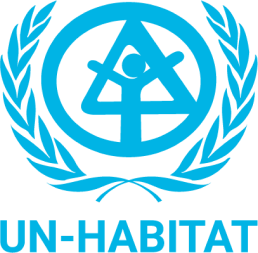25 June 2025, Lamahi, Dang, Nepal – Twenty‑three landless families in Lamahi Municipality Ward No 3, Kanchhi Tole received land ownership certificates. The certificates were distributed in a ceremony organised by Lamahi Municipality together with the Dang District Land Issues Resolving Commission Committee and other stakeholders.

For generations, these families have lived and operated on land under informal tenure without formal land ownership certificates. Ram Prasad Chaudhary (52) recalls when his family was relocated to this once forest area at the age of seven in 1988 AD. “My parents worked very hard to build a small hut here” he said. “We always lived under constant threat of forced eviction at any time. Now, with this certificate in hand, we can finally live with peace of mind and with the dignity of being landowners.

Ramkali Chaudhary (54) who raised three children by tilling land owned by landlords, expressed her relief of finally getting the legal title, and further escaping the stigma of being labelled “landless squatter”. “Without land life was full of hardship, pain and humiliation,” she said. Ram Prasad and Ramkali’s experiences are like those of the rest 23 families in Kanchhi Tole.

According to the Dang District Land Issues Resolving Commission Committee, 68 thousand 9 hundred and 26 households are classified among landless Dalits, landless Sukumbasi and informal settlers. After two years of persistent efforts, 23 landless families from Ward No 3 of Lamahi Municipality have now received land ownership certificates, 20 among them jointly in the names of husband and wife.
Land ownership certificate is important in Nepal as it serves as a legal proof of land ownership, ensuring security and protection of property rights. It helps prevent disputes, eviction, encroachment, and fraud, providing landholders with legal recognition and confidence to invest in their land. With the ownership certificates, landowners can access basic services, loans, and livelihood opportunities, especially in rural areas where agriculture remains central. It also supports inclusion in government programs and furthers social empowerment, particularly for marginalized groups and women who often face challenges in owning land. It is key towards translating the constitutional guarantee articulated under Fundamental Rights and Right to Social Justice through land tenure security. It is crucial towards ensuring zero eviction policy as a key approach towards ensuring human rights.
The land ownership certificates were handed over by the Commission Chairperson Hari Prasad Rijal, Dang District Commission Committee Chairperson Hukum Bahadur Basnet, Lamahi Mayor Jograj Chaudhary, Deputy Mayor Laxmi Yogi and District Coordination Committee Chief Nityanand Sharma.

Addressing the event, Hari Prasad Rijal pledged to provide land ownership certificates to all landless Dalits, landless Sukumabasi, and informal settlers within the stipulated timeframe. He emphasized that the commission is committed to actively pursue ensuring constitutional guarantee of property and housing rights. Hukum Bahadur Basnet noted with satisfaction the rapid progress of the work under way across all municipalities to ensure distribution of land ownership certificates. The first phase has targeted landless Dalits and landless Sukumbasi, with subsequent efforts to address the issues of informal settlers. Pragya Pradhan, Habitat Program Manager of UN-Habitat Nepal, expressed delight at the success of the land ownership certification initiative in Dang district, calling the event a “celebration of justice”.
The event was participated by officials from district land revenue and survey offices, representatives from media, political parties and local communities. Representatives from Embassy of Korea in Nepal were present as observers.
A project executed by UN-Habitat with funding from Ministry of Agriculture, Food and Rural Affairs (MAFRA) of Republic of Korea and in collaboration with Ministry of Land Management, Cooperatives and Poverty Alleviation (MoLMCPA) Government of Nepal is under implementation in Deukhuri Valley of Dang district and supported by Community Self-Reliance Centre (CSRC), Good Neighbors International (GNI) Nepal, and South Korea based organizations, Korea Rural Economic Institute (KREI) and Korea Land and Geospatial Informatix Corporation (LX). The project provides technical support in coordination with Lamahi municipality and Rajpur, Rapti, and Gadhawa rural municipalities, as well as the Dang District Land Issues Resolving Commission Committee, local entities like related Ward offices, and the district survey and land revenue offices in the process of Identification, Verification, and Recordation of landless towards land tenure security. Additionally, to improve the access to sustainable livelihoods and green economic activities of near landless, the project is implanting activities towards promotion of sustainable, climate smart, and inclusive land use for sustainable land management in the face of climate change. Together with land tenure security improved means of livelihoods are crucial for developing the standard of living of the poor and vulnerable indigenous communities in the area.


